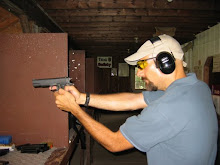We had a death in the family recently. The brother of one of my wife's friends died unexpectedly, and we've found ourselves uprooted and upended as we struggle to make final plans for someone far too young to have thought about them himself. There are arrangements to be made, an apartment to be cleaned, and survivors to be consoled.
Almost lost in all this is the effect this will have on our kids. This is their first exposure to the death of someone (somewhat) close to them - my grandmother passed on when my son was 15 months old, far too young to recall. My wife's grandfather passed away when my daughter was born - but out in Wisconsin, having met our son once when he was a toddler. Both kids have, thus far, been spared dealing with the aftermath of an untimely demise.
There will be questions; questions we don't have the answers for quite yet. "What did he die from?" "What does a dead body look like?" "What happens to him now that he's dead?" All the questions we'd hoped to postpone, if even for a short while, will need to be addressed and answered. Quite frankly, I'd rather give the sex talk...
What's even worse is that this was someone that the kids knew and liked. He and his sister didn't have much in the way of family besides each other and more or less adopted my wife's family as their own. They dote on the kids like their own niece and nephew, picking them up a little something for their birthdays or playing hide-and-seek when we get together as a family. I'm afraid at how hard this could potentially hit the kids when they realize that Uncle D. won't be around for Thanksgiving. Or ever again.
Any thoughts/experience/suggestions for breaking this kind of news to young kids would be greatly appreciated...
That is all.
Tuesday, October 6, 2009
Subscribe to:
Post Comments (Atom)







17 comments:
Faith is a staff to lean on in times of uncertain footing..... if you have it, use it.
I am sorry to hear of your loss, there is nothing easy about it. I still don't like the last image of a loved one in the casket, and I am not sure what the kids would make of it. Death is a part of life, and I am sure you will grow as a family as you go through this.
Well... first off, be honest. ANY sugar-coating will eventually bite you...
You know your kids better than anyone else: YOU make the decision of "Are they ready?" (regarding the funeral). Were it me, I'd ask their opinion, making sure they have as much info on what's going to happen as possible.
Wish there was something I could do to help you on this, bro.
My sympathies on your loss.
While I've had to deal with the loss of close relatives, I have yet to be the one to have to explain it to children, so I don't have experience to base this on. But I have to agree with Strings: don't sugar-coat it. And above all, if they ask what it's like to die, DO NOT say it's like going to sleep. That will just make your kids afraid to go to sleep.
(Wish I had more advice than that.)
I'm very sorry for your loss, Jay. And I wish I could give you advice, but I have nothing. I agree with the other commenters about not sugar-coating anything, and definitely be as honest with your children as you think they can take. Don't elaborate, answer strictly what they ask you (heh, that will help later with the sex talk, too).
Good luck.
Having had to deal with this with our son, we leaned heavily on our Catholic faith and on Christianity in general as well as being honest to the point of difficulty.
Of course, it then raises a lot of OTHER questions, "WHEN is Jesus coming back, and will he be wearing clothes?"
First, sorry for your family's loss, buddy.
Second, this is actually a learning lesson about life (yeah, I know you know, but I'm going somewhere with this) that is very crucial in their development. I was, once again, unbelievably lucky in that I had no one remotely close to me die until I was 20 years old (my maternal grandmother, who was in essence my second mom). Within the span of the next three years I lost all my other grandparents and most importantly to me, my precious mother.
Since I had no experience on how to handle those sorts of things & since I'm hard-wired against emotion (hence my contention that Jared's autsim came via my gene) and was clueless as to how to approach these catastrophes, it hit me much harder than the average person. Hand to the sky, it took 10 years before someone was able to mention my mother in my presence (family members were warned before hand by my wife) & it really took the birth of my own children before I came to terms with her being gone. Whenever I talk about her to my kids TODAY, within 15 seconds, BOOM, the tears start rolling down my cheeks & I'm 42. They say time heals all wounds; that's a @#$% lie, it still hurts today just as much as when I was told that she'd passed away, I've just learned how to accept it & focus on the fact that I have to little ones that have filled the ache that was in my heart.
So, yes, Simba, the circle of life is true. Tough, but true & something that we all must accept. Some, better than others. I'm part of the others. Hopefully, your kids will learn & be able to process things that come down the road that hit closer to home than this (it will happen to all of us).
Best of luck.
When my Great Grandmother died, eldest nephew was just old enough to begin to understand.
I'm not sure exactly how the Bro and Sis In Law explained it to him but I know they didn't hide anything from him. He saw her in her casket, told her and would miss her, and that he hoped she felt better now.
Same for my Grandpa this last year.
It's not going to be easy, but be as open with them as you can, tell them it's ok to be sad and to miss him, and make sure they have plenty of love and shoulders to cry on.
My sympathies on your loss, Jay.
Not having children, I'm afraid I can't give you any sage advice other than TELL THEM THE TRUTH. I've always tried to do that with my nieces and nephews, and it seems to work. Better that they learn now than learn something that's not true that they have to unlearn later.
Thanks everyone.
The kids will be told the truth, no question about that. I don't believe in that whole "they went to sleep" BS; that's just prolonging the inevitable.
I just wish I knew more about the circumstances. There's a wide world of difference between a suicide, an OD, and a tragic accident...
*sigh*
Well, like a certain Acidman used to say, if parenting were easy, any asshole could do it...
My Mom still tells the story of when her father died from a prolonged fight with lung cancer. I knew he was sick, and probably understood where it was going. I was about 5. Mom picked me up from school and give me the news.
I went into my room and cried my little eyes out. Then emerged a little while later and said:
"I miss Grampa, I want to watch cartoons now"
I honestly think "He got really sick" might cover the situations of death fairly well. Suicide and addiction cover the "sickness" gamet pretty well, I'm not sure how much of it your kids would be able to understand anyway.
if it was suicide, these people do good work
http://www.samaritansofboston.org/
Let them know, and let them grieve in their own way.
Let me start with sorry to here the news. . .I have had to deal with my kids loosing both grand dads they knew well and saw weekly.
Tell them the truth, that is best. I then let them talk it out, ask quesitions and I did what I could to answer. I also let them see my wife and I cry and know it was ok to miss them. . .
It is hard but make sure they know you are there for them. . .
Good luck
One other thing, we made sure that they knew the cancer did not go with Papa to the other side. We also told them that he will still watch over them and they can talk to him whenever they wanted to now. . . . It was not easy and we still get emotional about it even three years later when we visit my Dad's grave but they got through it.
Unfortunately, we've been through this many, many times and all of them very close to us. Be open and honest. Death is a natural process of life. Explain they'll see them in heaven when it's their time but he's not coming back right now. We've mostly dealt with illnesses before and were prepared. That makes it easier to some extent. The suffering has ended for them.
You've covered the basics:
1) Be honest.
2) If details are unknown, don't fake it. Just say you don't know. If details are known but inappropriate to share with children, then don't.
B and I had our turn in this particular barrel, as our two oldest had to suffer a catastrophic education five years ago. We told them the truth, and when we were confronted with "WHY?", we didn't know the answer - and told them so. The tears lasted years, and still return from time to time, but there was no easy way out.
The best chance of "success" (if there is such a thing in a circumstance like this), it involves Mommy and Daddy being there for them...
Jay,
I saw this earlier and wanted to think about.it before I posted. My father's mother died when I was 8. It was sudden, and we were pulled out of school for the trip. My father's own grief occupied him, and by extension my mother.
We were to the viewing, and the Catholic funeral. It was the first body I had ever seen, and the first funeral/graveside. I was left to puzzle it out. I knew what dead was. Dead like a dead squirrel, hit by a car, or a pheasant shot by my grandfather.
I worked it out. If I cried, I did it on my own terms, alone. I did not want my mother hovering over me. I thought about it, about the finality if it. I recognized that sooner or later it would be my turn.
It is a passage toward being an adult. It is part of being human. In fact, I think it is what makes us human. That self-awareness, and the understanding that once we were not, now we are, and there will again be a time when we are not.
While it is natural for you to want to protect your children, it is not possible to protect them from this knowledge. My advice is this: Don't hide it. Sit them down and tell them. Be prepared for any sort of reaction, including not much of anything. Be aware that they will be thinking about this, processing it, for a long time. Don't pry, but be mindful of how they act, what they say, both now, and later at holidays or maybe just at some random moment.
When it does come up, be honest. Talk about your feelings, about how this loss hurt everyone, about how precious life is, and how fragile it can be.
There, free advice is always worth just what you paid for it. And all this did is make me miss my grandma, who left here 44 years ago this month.
Post a Comment